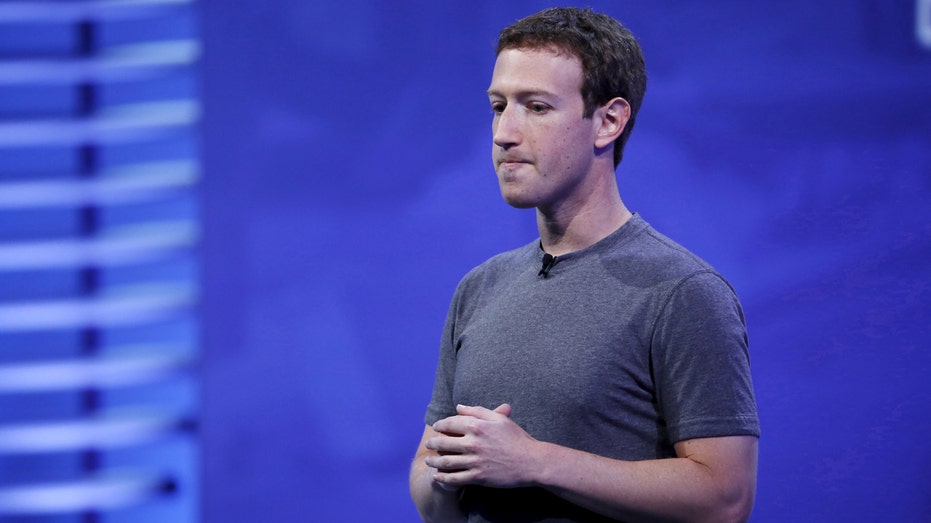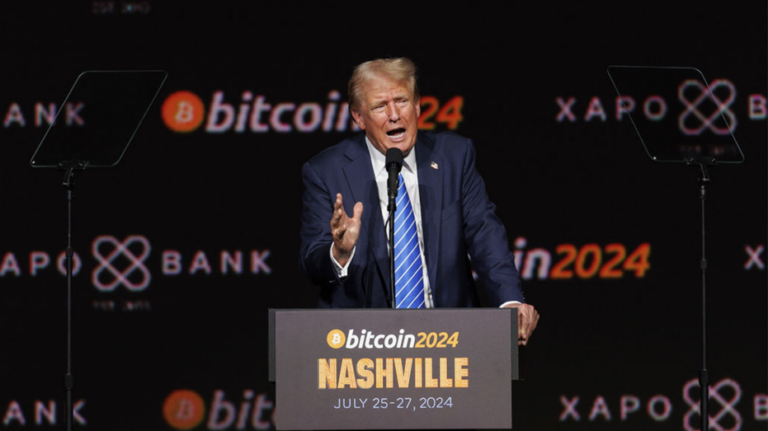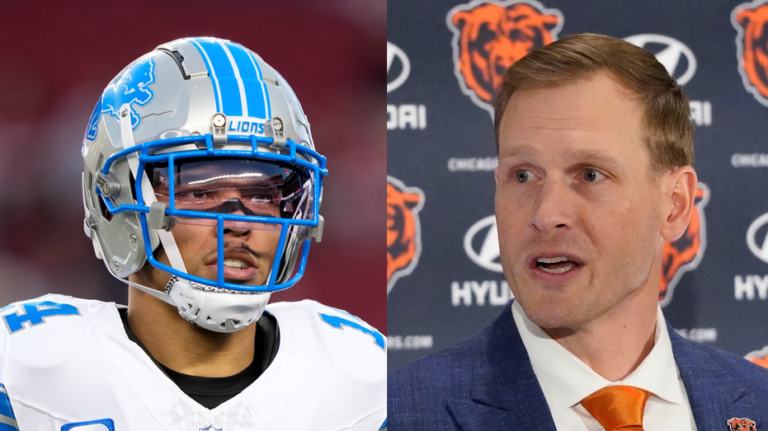
Meta CEO Mark Zuckerberg’s past comments on censorship have resurfaced following his decision to end fact-checking on his U.S. platforms, revealing a storied timeline of seemingly contradictory positions that appeared to put him at odds with his company.
As controversy swirled over his refusal to fact-check political ads in 2019, Zuckerberg asserted that Facebook did not support censoring its users, citing his belief that people were entitled to “make their own decisions” based on the content put forth.
“I don’t think that a private company should be censoring politicians or news,” Zuckerberg said in a CBS interview at the time.
META ENDS FACT-CHECKING PROGRAM AS ZUCKERBERG VOWS TO RESTORE FREE EXPRESSION ON FACEBOOK, INSTAGRAM
“I generally believe that as a principle, people should decide what is credible, what they want to believe and who they want to vote for, and I don’t think that that should be something that we want tech companies, or any kind of other company [to] do,” he said in a Fox News interview that same year.
He also gave a speech at Georgetown University in 2019, slamming China for throttling free speech on the internet.
In 2020, Zuckerberg doubled down on his position, stating in a subsequent Fox News interview, “I just believe strongly that Facebook shouldn’t be the arbiter of truth of everything that people say online. Private companies probably shouldn’t be, especially these platform companies, shouldn’t be in the position of doing that.”
TRUMP SAYS META HAS ‘COME A LONG WAY’ AFTER ZUCKERBERG ENDS FACT-CHECKING ON PLATFORMS
But just one month after that appearance, Zuckerberg’s company Meta, then Facebook, announced it was expanding its U.S. fact-checking program, touting it at the time as “a key piece of our strategy to reduce the spread of misinformation” on the platform.
In the aftermath of the January 6 Capitol riot in 2021, Facebook banned then-President Trump from the social media site. The company didn’t reinstate Trump’s account until January 2023.
In April 2024, Zuckerberg admitted in a letter that Facebook was pressured by the Biden-Harris administration to censor Americans regarding COVID-19 content. Zuckerberg said he didn’t support the decision, despite owning up to it, and expressed remorse for caving to the pressure from Biden officials.
The tech mogul’s prior comments were thrust back into the spotlight this week after he announced that Meta was lifting restrictions on speech to “restore free expression” across Facebook, Instagram and Meta platforms by ending its third-party fact-checking program, admitting that their content moderation practices have gone “too far.”
Meta’s third-party fact-checking program was first implemented after the 2016 election and had been used to “manage content” and misinformation on its platforms, largely due to “political pressure,” executives said.
At the time of Zuckerberg’s announcement on Tuesday, ten prominent fact-checking organizations were working with the company to moderate political content in the U.S.
FACEBOOK ADMITS ‘MISTAKE’ IN CENSORING ICONIC TRUMP ASSASSINATION ATTEMPT PHOTO: ‘THIS WAS AN ERROR’
Reuters, USA Today, The Dispatch, PolitiFact, Agence France-Presse U.S., Check Your Fact, Factcheck.org, Lead Stories, Science Feedback, and ElDetector Univision comprised the team of third-party fact-checking partners, Facebook confirmed to Fox News Digital.
They were told to prioritize “provably false claims, especially those that are timely, trending and consequential. They don’t prioritize claims that are inconsequential or contain only minor inaccuracies,” according to a Meta 2024 press release.
Many of these organizations lamented Zuckerberg’s decision to scrap their program on Tuesday, slamming his attempt to avoid online bias as misguided and sudden.
Lead Stories editor Maarten Schenk outlined his disappointment and disagreement with the move, stating that he was only informed of the ceased partnership through media reporting of Zuckerberg’s decision to cut the program.
“Lead Stories was surprised and disappointed to first learn through media reports and a press release about the end of the Meta Third-Party Fact-Checking Partnership of which Lead Stories has been a part since 2019,” he wrote on Tuesday.
The Facebook fact-checker, who employs several former CNN alumni including Alan Duke and Ed Payne, has become one of the more prominent fact checkers used by Facebook in recent years.
PolitiFact similarly derided the move, which ended their eight-year partnership with Meta, stating that Meta first hired them “to identify false information and hoaxes on its platforms.”
Neil Brown, president of the Poynter Institute, the journalism nonprofit that owns PolitiFact, called Zuckerberg’s statement “disappointing.”
“It perpetuates a misunderstanding of its own program,” Brown said of Zuckerberg’s statement. “Facts are not censorship. Fact-checkers never censored anything. And Meta always held the cards. It’s time to quit invoking inflammatory and false language in describing the role of journalists and fact-checking.”
AFP, a global news agency based in Paris, said they also learned Zuckerberg was scrapping the program at the same time as the public.
“It’s a hard hit for the fact-checking community and journalism. We’re assessing the situation,” they told Reuters.
Zuckerberg’s decision was widely celebrated by conservatives, who’ve grown frustrated with fact-checkers after a number of dubious practices sparked outrage from media critics and right-leaning online users. In recent years, some have charged fact-checking websites with acting as shields for the Democratic Party, with partisan intentions.
‘BLOOD ON YOUR HANDS:’ A LOOK AT MARK ZUCKERBERG’S TENSE MOMENTS IN CONGRESSIONAL HEARINGS
Conservative KTTH radio host Jason Rantz once called PolitiFact “Democratic Party activists who have chosen to weaponize what should be truly objective analysis” after the organization published several highly contested fact-checks against Republicans.
Rantz, at the time, said the organization was one of the most “transparently partisan” websites available, often used by left-wing media to amplify political propaganda.
When asked about the 2022 accusation, PolitFact’s managing editor Katie Sanders stated that the fact-checking website stood by its reporting.
President-elect Donald Trump has frequently complained about fact-checkers, often griping about the people behind the moderation practice throughout the 2024 campaign. He celebrated Zuckerberg’s decision to end Meta’s third-party fact-checking on Tuesday, telling Fox News Digital that the company has “come a long way.”
Prior to Tuesday’s announcement, Meta repeatedly touted its third-party fact-checking initiative as an effective system to “reduce the spread of misinformation and provide more reliable information to users.”
All of the organizations, they said, were bound to the Code of Principles drafted by the International Fact-Checking Network (IFCN), which includes qualities such as “nonpartisanship, fairness, transparency of sources, transparency of funding and organization and an open and honest corrections’ policy.”
Meta’s webpage promoting the program remains active as of Wednesday, despite Zuckerberg blaming the organizations involved for taking their moderation practices “too far.”
In the video announcing the end of the program, Zuckerberg pledged to “get back to our roots and focus on reducing mistakes, simplifying our policies and restoring free expression on our platforms.”
Meta’s chief global affairs officer, Joel Kaplan, praised the move as a “great opportunity for us to set the balance in favor of free expression” on “Fox & Friends” Tuesday.
“We went to independent, third-party fact-checkers,” he later told Fox News Digital. “It has become clear there is too much political bias in what they choose to fact-check because, basically, they get to fact-check whatever they see on the platform.”
“We want to make sure that discourse can happen freely on the platform without fear of censorship,” Kaplan added. “We have the power to change the rules and make them more supportive of free expression. And we’re not just changing the rules, we are actually changing how we enforce the rules.”
Kaplan said Meta is “ending that completely” and will replace it with a “Community Notes” model similar to the one used on X, formerly Twitter.
Meta’s global fact-checking program will seemingly continue to run uninterrupted. The company did not respond when questioned about the future of the global program by Fox News Digital.
Meta CEO Mark Zuckerberg’s past comments on censorship have resurfaced following his decision to end fact-checking on his U.S. platforms, revealing a storied timeline of seemingly contradictory positions that appeared to put him at odds with his company.
As controversy swirled over his refusal to fact-check political ads in 2019, Zuckerberg asserted that Facebook did not support censoring its users, citing his belief that people were entitled to “make their own decisions” based on the content put forth.
“I don’t think that a private company should be censoring politicians or news,” Zuckerberg said in a CBS interview at the time.
META ENDS FACT-CHECKING PROGRAM AS ZUCKERBERG VOWS TO RESTORE FREE EXPRESSION ON FACEBOOK, INSTAGRAM
“I generally believe that as a principle, people should decide what is credible, what they want to believe and who they want to vote for, and I don’t think that that should be something that we want tech companies, or any kind of other company [to] do,” he said in a Fox News interview that same year.
He also gave a speech at Georgetown University in 2019, slamming China for throttling free speech on the internet.
In 2020, Zuckerberg doubled down on his position, stating in a subsequent Fox News interview, “I just believe strongly that Facebook shouldn’t be the arbiter of truth of everything that people say online. Private companies probably shouldn’t be, especially these platform companies, shouldn’t be in the position of doing that.”
TRUMP SAYS META HAS ‘COME A LONG WAY’ AFTER ZUCKERBERG ENDS FACT-CHECKING ON PLATFORMS
But just one month after that appearance, Zuckerberg’s company Meta, then Facebook, announced it was expanding its U.S. fact-checking program, touting it at the time as “a key piece of our strategy to reduce the spread of misinformation” on the platform.
In the aftermath of the January 6 Capitol riot in 2021, Facebook banned then-President Trump from the social media site. The company didn’t reinstate Trump’s account until January 2023.
In April 2024, Zuckerberg admitted in a letter that Facebook was pressured by the Biden-Harris administration to censor Americans regarding COVID-19 content. Zuckerberg said he didn’t support the decision, despite owning up to it, and expressed remorse for caving to the pressure from Biden officials.
The tech mogul’s prior comments were thrust back into the spotlight this week after he announced that Meta was lifting restrictions on speech to “restore free expression” across Facebook, Instagram and Meta platforms by ending its third-party fact-checking program, admitting that their content moderation practices have gone “too far.”
Meta’s third-party fact-checking program was first implemented after the 2016 election and had been used to “manage content” and misinformation on its platforms, largely due to “political pressure,” executives said.
At the time of Zuckerberg’s announcement on Tuesday, ten prominent fact-checking organizations were working with the company to moderate political content in the U.S.
FACEBOOK ADMITS ‘MISTAKE’ IN CENSORING ICONIC TRUMP ASSASSINATION ATTEMPT PHOTO: ‘THIS WAS AN ERROR’
Reuters, USA Today, The Dispatch, PolitiFact, Agence France-Presse U.S., Check Your Fact, Factcheck.org, Lead Stories, Science Feedback, and ElDetector Univision comprised the team of third-party fact-checking partners, Facebook confirmed to Fox News Digital.
They were told to prioritize “provably false claims, especially those that are timely, trending and consequential. They don’t prioritize claims that are inconsequential or contain only minor inaccuracies,” according to a Meta 2024 press release.
Many of these organizations lamented Zuckerberg’s decision to scrap their program on Tuesday, slamming his attempt to avoid online bias as misguided and sudden.
Lead Stories editor Maarten Schenk outlined his disappointment and disagreement with the move, stating that he was only informed of the ceased partnership through media reporting of Zuckerberg’s decision to cut the program.
“Lead Stories was surprised and disappointed to first learn through media reports and a press release about the end of the Meta Third-Party Fact-Checking Partnership of which Lead Stories has been a part since 2019,” he wrote on Tuesday.
The Facebook fact-checker, who employs several former CNN alumni including Alan Duke and Ed Payne, has become one of the more prominent fact checkers used by Facebook in recent years.
PolitiFact similarly derided the move, which ended their eight-year partnership with Meta, stating that Meta first hired them “to identify false information and hoaxes on its platforms.”
Neil Brown, president of the Poynter Institute, the journalism nonprofit that owns PolitiFact, called Zuckerberg’s statement “disappointing.”
“It perpetuates a misunderstanding of its own program,” Brown said of Zuckerberg’s statement. “Facts are not censorship. Fact-checkers never censored anything. And Meta always held the cards. It’s time to quit invoking inflammatory and false language in describing the role of journalists and fact-checking.”
AFP, a global news agency based in Paris, said they also learned Zuckerberg was scrapping the program at the same time as the public.
“It’s a hard hit for the fact-checking community and journalism. We’re assessing the situation,” they told Reuters.
Zuckerberg’s decision was widely celebrated by conservatives, who’ve grown frustrated with fact-checkers after a number of dubious practices sparked outrage from media critics and right-leaning online users. In recent years, some have charged fact-checking websites with acting as shields for the Democratic Party, with partisan intentions.
‘BLOOD ON YOUR HANDS:’ A LOOK AT MARK ZUCKERBERG’S TENSE MOMENTS IN CONGRESSIONAL HEARINGS
Conservative KTTH radio host Jason Rantz once called PolitiFact “Democratic Party activists who have chosen to weaponize what should be truly objective analysis” after the organization published several highly contested fact-checks against Republicans.
Rantz, at the time, said the organization was one of the most “transparently partisan” websites available, often used by left-wing media to amplify political propaganda.
When asked about the 2022 accusation, PolitFact’s managing editor Katie Sanders stated that the fact-checking website stood by its reporting.
President-elect Donald Trump has frequently complained about fact-checkers, often griping about the people behind the moderation practice throughout the 2024 campaign. He celebrated Zuckerberg’s decision to end Meta’s third-party fact-checking on Tuesday, telling Fox News Digital that the company has “come a long way.”
Prior to Tuesday’s announcement, Meta repeatedly touted its third-party fact-checking initiative as an effective system to “reduce the spread of misinformation and provide more reliable information to users.”
All of the organizations, they said, were bound to the Code of Principles drafted by the International Fact-Checking Network (IFCN), which includes qualities such as “nonpartisanship, fairness, transparency of sources, transparency of funding and organization and an open and honest corrections’ policy.”
Meta’s webpage promoting the program remains active as of Wednesday, despite Zuckerberg blaming the organizations involved for taking their moderation practices “too far.”
In the video announcing the end of the program, Zuckerberg pledged to “get back to our roots and focus on reducing mistakes, simplifying our policies and restoring free expression on our platforms.”
Meta’s chief global affairs officer, Joel Kaplan, praised the move as a “great opportunity for us to set the balance in favor of free expression” on “Fox & Friends” Tuesday.
“We went to independent, third-party fact-checkers,” he later told Fox News Digital. “It has become clear there is too much political bias in what they choose to fact-check because, basically, they get to fact-check whatever they see on the platform.”
“We want to make sure that discourse can happen freely on the platform without fear of censorship,” Kaplan added. “We have the power to change the rules and make them more supportive of free expression. And we’re not just changing the rules, we are actually changing how we enforce the rules.”
Kaplan said Meta is “ending that completely” and will replace it with a “Community Notes” model similar to the one used on X, formerly Twitter.
Meta’s global fact-checking program will seemingly continue to run uninterrupted. The company did not respond when questioned about the future of the global program by Fox News Digital.



